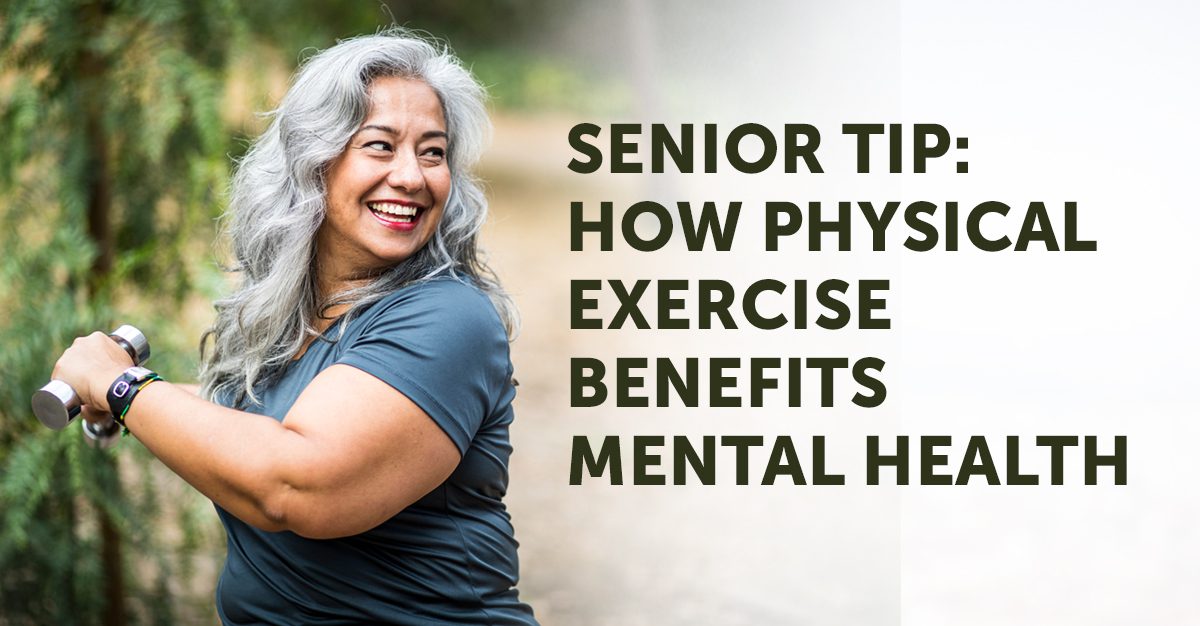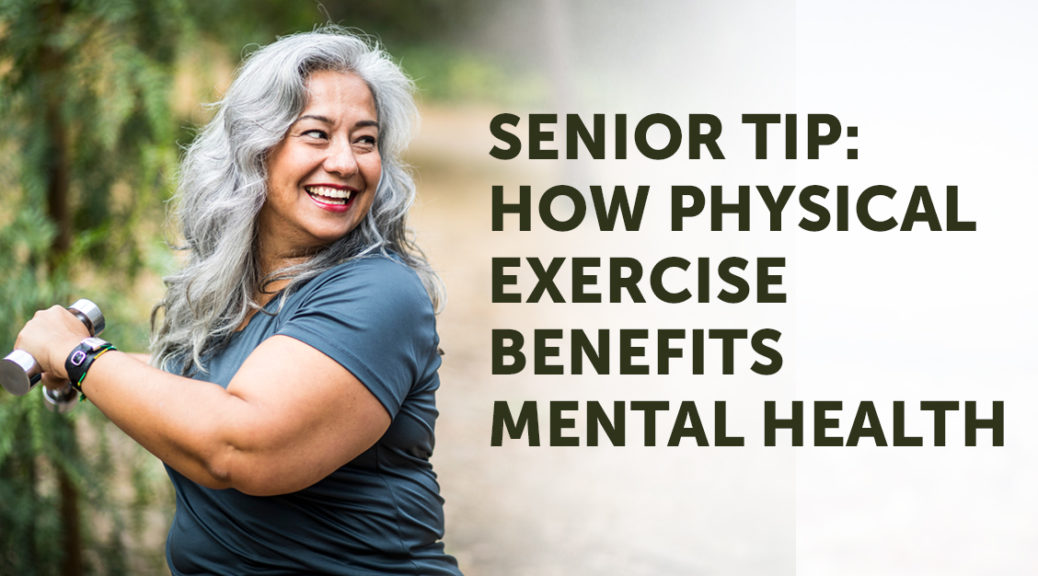
We all know the importance of exercise in our lives. Exercise keeps our body, soul, and brain, healthy. It keeps us fit physically as well as mentally. According to Senior Guidance, older adults who exercise regularly have lower rates of getting any kind of mental illness. Moreover, exercise also helps in treating anxiety and depression. Many people believe that with growing age, the exercise loses its effect. Hence, there is no need for elderly people to strain their bodies. That’s just not true. Exercise benefits mental health at every age.
Per health experts, regular exercise is highly beneficial for elderly people. It would not only let them live an active and healthy life but would help in increasing their life span. If you want to be physically, emotionally, and mentally fit, try doing regular exercise. Exercise benefits mental health by keeping seniors active and healthy, which would further help them live independently.
A regular, healthy part of senior living should be to find the motivation to do regular exercise. Routine exercise will help older adults become mentally strong and fight mental conditions like depression and anxiety, which are quite common at their age.
Benefits of exercise for aging adults and golden oldies include:
1. Helps You Sleep Better
One of the most common problems faced by senior people is the lack of sleep. As we get older, we tend to have a lighter and less deep sleep. Various researches have proved that exercise boost sleep. Regular exercise improves the quality of sleep. Physical activity like exercise increases the time of deep sleep, which further helps in boosting the immune system and controlling anxiety and stress. Moreover, exercise results in energy expenditure, which makes you feel tired, which results in longer and peaceful sleep.
2. Helps to Maintain the Level of Chemicals in Brain
Brain chemicals or neurotransmitters are responsible for how we feel, physically as well as mentally. This holds true for young and elderly people. Regular exercise stimulates the production of brain chemicals- dopamine, norepinephrine, and serotonin. Regular exercise boosts the release of these brain chemicals, which help us in improving our overall well-being. Exercise stimulates the production of norepinephrine, which counters the effect of stress response in our body. Exercise gives a relaxing and calming effect on our brain and body because of the release of serotonin. Hence, regular exercise is essential for senior people as it helps in maintaining the level of brain chemicals, which decreases mood disorder symptoms, reduces stress, and gives a feeling of calmness and relaxation.
3. Boosts Energy Levels
Fatigue is very common among elderly people. Exercise does not only help in overcoming fatigue but also increases the energy level in the body. Just taking a simple walk in the fresh air not only refreshes your mood but would also boost your energy levels. While exercising, we use the energy which is stored in our body and start making more of it. Sitting and remaining inactive will not bring any change in the state of fatigue. However, getting involved in some physical exercise will make you feel active.
4. Reduces the Muscle Tension
Muscle tension is another common health problem faced by elderly people. Prolonged semi-contracted state in muscles results in muscle tension. This further results in muscle pain and muscle spasm. One of the major causes of muscle tension is lack of exercise. In addition to this, with age, people start losing muscle mass and strength. Older adults who spend most of their time in remaining sedentary faces more muscle-related problems. Tense muscles generally lack oxygen and vital nutrients. Exercise increases the flow of blood to muscle cells, which further increases the oxygenation in muscles.
5. Decreases the Risk of Falls
The risk of falls is much higher in older adults. Falls are quite dangerous for them as it not only causes physical damage to the body but also hampers their independence. Recovery time after falls increases with growing age. Regular exercise or enrollment in a fall prevention physical therapy program increases muscle strength and flexibility. Physical exercises result in better bone density, which makes bone stronger and reduces the risk of getting fractures and osteoporosis. Exercise reduces the risk of falls by improving coordination and balance.
6. Makes You Happier and Boosts Positivity
Regular exercise brings positivity in life and makes you feel happier. Exercise stimulates the release of the happy hormone ‘Dopamine’ in our brain. This hormone is very essential for feeling happiness. Studies state that with age, the dopamine level decreases in our brain. This makes regular exercise more important for senior adults.
7. Reduces the Risk of Developing Dementia
Recent studies show that inactivity increases the chances of Dementia among seniors, requiring memory care or assisted living at later stages of the disease. Dementia is an umbrella that covers various mental conditions, including judgment impairment, memory loss, etc. Regular exercise increases the blood flow to the brain, which keeps the cells healthy. Moreover, exercise increases the production of brain chemicals and growth factors, which helps in keeping existing cells healthy and also helps in the growth of new brain cells, which results in increasing memory and control thinking.
Regular exercise is essential for everyone irrespective of age. Exercise benefits mental health by reducing stress, depression, and anxiety. Just make sure to make exercise a part of your everyday regime. It will help you in living a healthy and happy life.
Please consult your healthcare provider before starting an exercise program. If you are looking for help developing an exercise routine that fits your needs and skill level, please reach out to your physical therapist for guidance.

